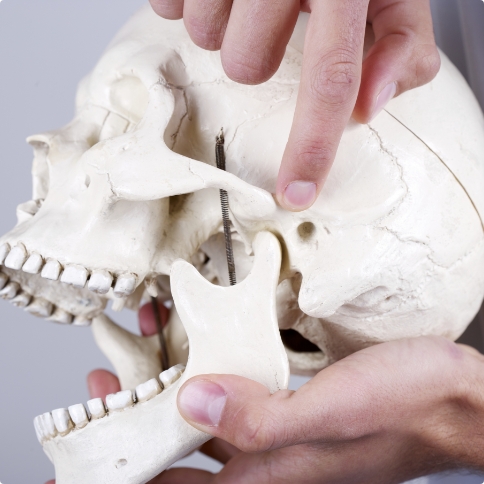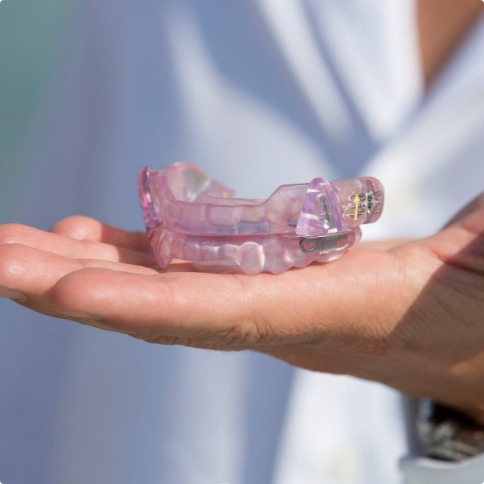TMJ Treatment Weatherford
Improving Jaw Joints to Create Pain-Free Smiles
Good oral health means protecting more than just your teeth and gums. Your jaw is an important part of your mouth’s function overall, so an issue with your TMJ (the small joints that connect the lower jaw to your head) can lead to a lot of chronic pain and dental damage. At Cosmetic & Family Dentistry of Weatherford, we can use TMJ treatment in Weatherford to help you treat and avoid the debilitating symptoms of jaw dysfunction. Contact our dental office today if you’re suffering from chronic head, neck, jaw, or shoulder pain.
Why Choose Cosmetic & Family Dentistry of Weatherford for TMJ Treatment?
- Innovative Solutions to Treat Jaw Pain
- Dentist with Extensive Continuing Education & Training
- Your Dental Insurance is Welcome
Symptoms of a TMJ Disorder

There are many different possible reasons for a TMJ disorder to develop – various kinds of arthritis, jaw injury, teeth grinding or clenching, diseased connective tissue – but oftentimes, the underlying cause isn’t clear. Thus, you should be aware of the different signs and symptoms that can point to problems with your TMJ. This might include:
- Pain or tenderness in your jaw
- Recurring headaches
- Aching pain in the face, neck, or shoulder
- Tinnitus (ringing in your ear)
- Difficulty chewing
- Jaw joints that become locked and make it hard to open or close your mouth
- A clicking sound or grating sensation whenever you chew
Not all these symptoms need to be present to indicate a TMJ disorder; in general, you should seek treatment for any kind of persistent pain or if you suffer from limited jaw mobility.
Equilibration/Occlusal Adjustments

By repairing the bite surfaces of your teeth, our team can help to correct the way your teeth connect, alleviating any pressure or damage being caused to your jaw joints. Over time, the improvement of your bite will allow the facial muscles to relax as well as the jaw so that it reduces the potential for worn tooth enamel and chronic jaw pain.
Intraoral Appliance Therapy

There’s often no need for surgery to treat a TMJ disorder; in many cases, an intraoral appliance (which resembles a mouthguard you might wear for sports) can be used to address the underlying issue and relieve your jaw pain in Weatherford. For example, if you grind or clench your teeth at night, an appliance can be used to stop this from happening; not only will this lead to less pain, but it will also protect your teeth from being worn down. In other cases, we can use an intraoral appliance to correct a slight misalignment in your joint, repositioning the jaw to reduce strain on your TMJ.
I Need a Checkup & Cleaning I Need Help with a Lip and/or Tongue-Tie I am Worried About Gum Disease I Have a Cavity or Broken Tooth I am Missing One or More Teeth I Want to Enhance My Smile I Want a Straighter Smile I am Scared of the Dentist I'm Having Trouble Sleeping I Have a Dental Emergency View Our Services
